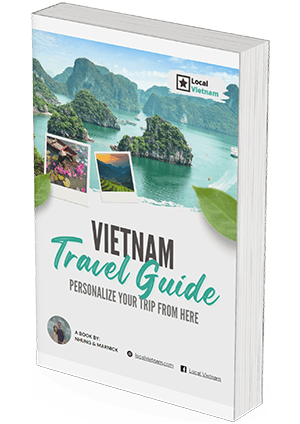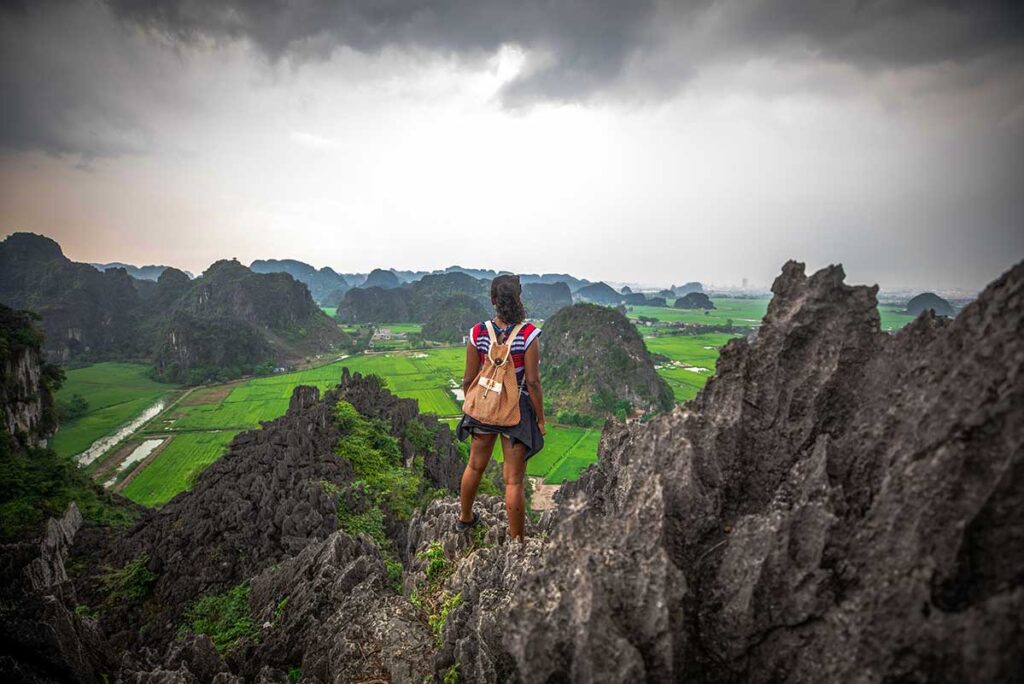Food and drink safety in Vietnam
Drinking water
- Water from the tap must first be boiled or taken from a bottle before it can be drunk or for ice cubes, brushing your teeth, washing vegetables, and so on.
Food
- Only eat meat and fish that is well done, vegetables that are cooked and peeled fruit.
- Try to avoid food made on the street under poor hygienic conditions. Look where it is busy: the turnover rate at which the food is made and eaten is high. Eat at restaurants where you can see that it is clean.
Animals
Mosquitoes
- Malaria and dengue are found in certain areas of Vietnam. This can be transmitted by mosquitoes. Dengue mosquitoes sting during the day and mosquitoes that transmit malaria sting in the evening until dawn. View the malaria map to see where they occur.
Mammals
- Rabies occurs in Vietnam. If you have been bitten by a mammal, for example a dog, cat or bat, contact a doctor immediately.
Vaccinations for Vietnam
Vaccinations
Vaccinations are not compulsory for Vietnam (see Yellow fever).
DTP vaccination and protection against hepatitis A are recommended. For stays longer than two weeks, a typhoid vaccine is also recommended.
There is an increased risk of measles in this country. Vaccination is recommended for anyone born after 1964, who has not been vaccinated against measles and who has not had measles and for children older than 6 months but who have not yet been vaccinated with the BMR vaccine.
Yellow fever
- For travelers who have visited an area with yellow fever prior to arrival in Vietnam, or even made a stopover, a vaccination certificate of at least 10 days old is required.
- Yellow fever occurs in certain parts of Africa and South America (see lcr.nl/Landen). Travelers are advised to discuss with the doctor or an employee of a recognized vaccination center whether yellow fever vaccination is useful.
- Children up to 1 year are exempt from the vaccination.
Malaria in Vietnam
- Malaria occurs throughout the year, especially in the wooded hill countries on the border with Cambodia and south of the Mekong Delta.
- Protection against mosquito bites is always important. In the event of a fever or flu-like symptoms during or after a stay in a malaria area, always contact a doctor immediately.
Medical care and safety in Vietnam
The level of medical care in the big cities is reasonable, especially in the hospitals in Hanoi and Ho Chi Minh City. The medical facilities outside the cities are very limited.
Travelers are advised to take out good travel insurance that also covers the costs of a possible repatriation. Please note that cash must be paid for the provision of medical care.
In the event of a hospitalization or when specialist medical care is required, it is best for travelers to contact their insurance company directly.
Emergencies
- In case of an emergency, for example in the event of a hospitalization abroad, you can contact the Ministry of Foreign Affairs. The contact center of this ministry can be reached 24 hours a day, 7 days a week on telephone number +31 247 247 247, also from abroad (note roaming costs). The Ministry also provides information via the 24/7 BZ Reis app.
- For information and possible support you can also contact the Dutch representation in Hanoi or Ho Chi Minh City.
Medicines
- Pharmacies in the larger cities are generally well supplied, but it can be difficult to get medicines outside of them. In remote areas, note the expiration date of the medicines that are for sale.
- Take special medicines with you to a sufficient degree (in the original packaging) or ask the doctor for a prescription.
- It is advisable to bring a travel pharmacy with regular medicines yourself.
Medical statement
- Travelers who take medicines that fall under the Opium Act (such as certain sleeping aids, ADHD medicines and strong painkillers) must have a legalized English-language medical certificate for these medicines.
- Traveling with these medicines without an explanation is punishable.
- The statement is valid for 1 year after the specified effective date.
- Request the statement at least 4 weeks before departure.
Skincare
- Take wounds seriously: keep an eye on them and add something disinfectant and possibly a plaster during the day.
- Provide sunscreen protection on exposed skin.
- Do not wear brightly colored or black clothing and strong perfume, deo or after shave to keep stinging insects away.
- Wash or disinfect your hands after visiting the toilet and prefer not to bite nails.
- Prevent sunstroke by wearing a hat / cap / and possibly sunglasses.
Health & Safety checklist
Recommended, but not complete, items for a personal medical kit:
- Antibacterial cream, e.g. mupirocin
- Antihistamines for allergies, eg cetirizine for the day and promethazine for the night
- Antiseptic for cuts and abrasions, eg iodine solution such as Betadine
- DEET-based insect repellent
- Diarrhea “stop”, eg loperamide
- First aid items such as scissors, plasters, bandages, gauze, safety pins and tweezers
- Paracetamol or ibuprofen for pain
- Sunscreen


